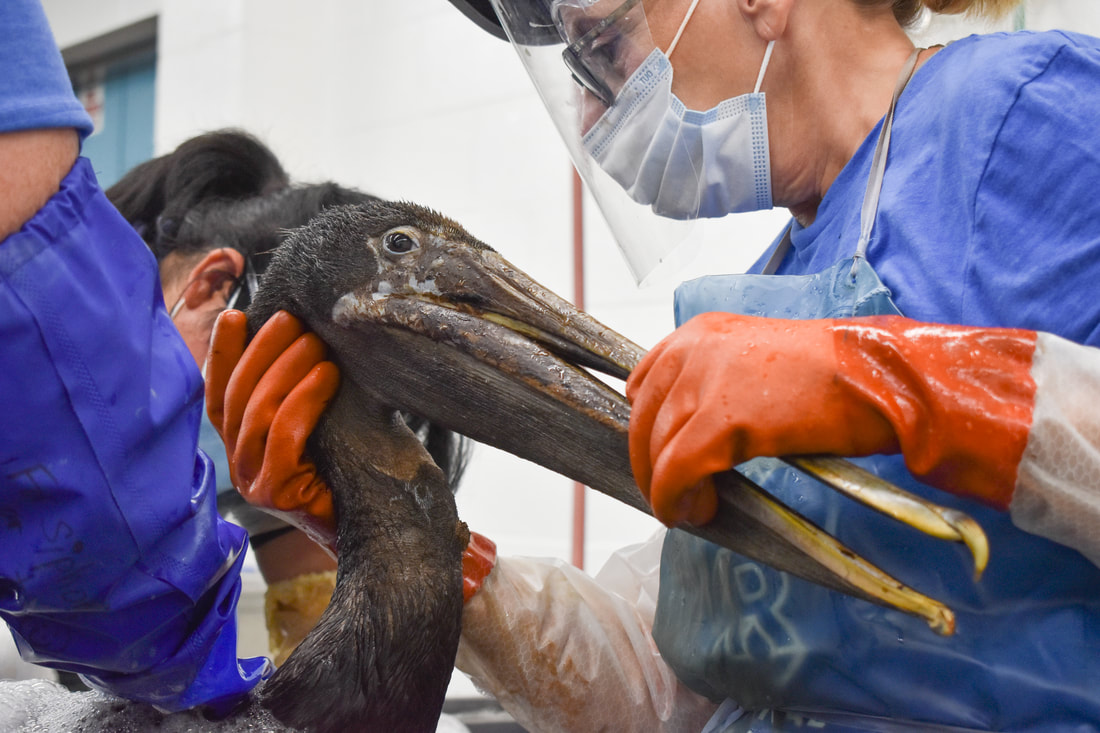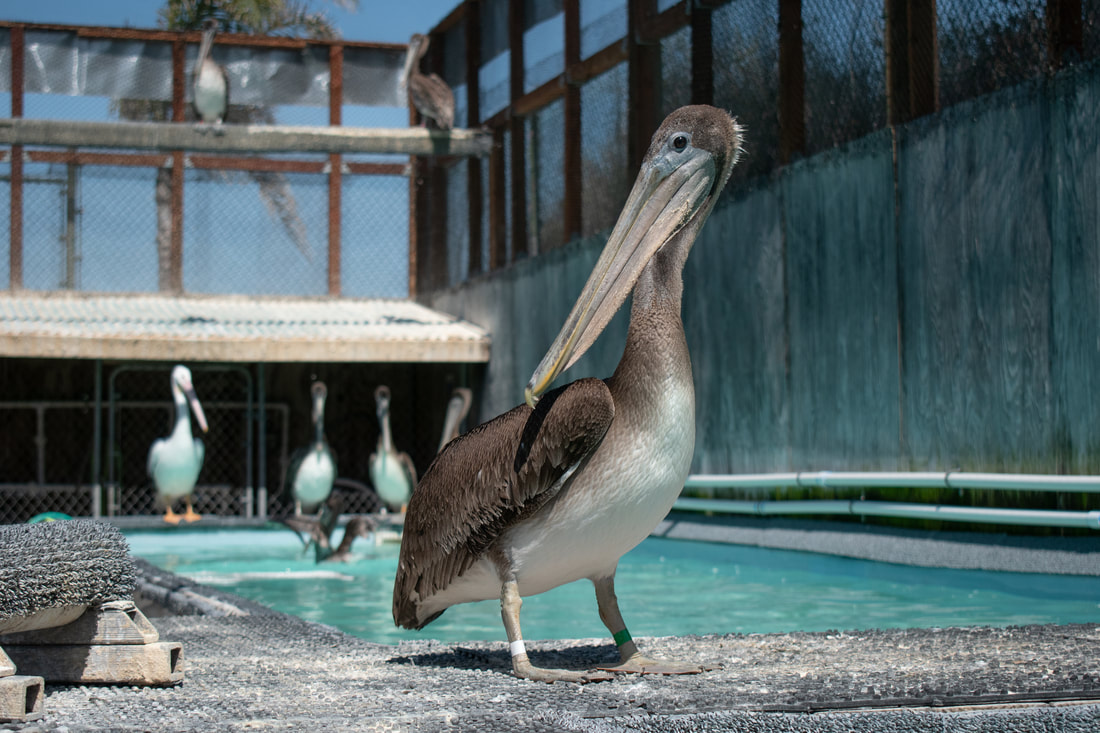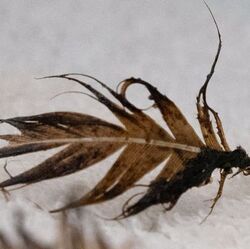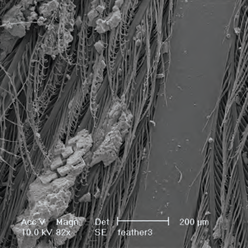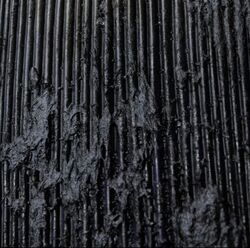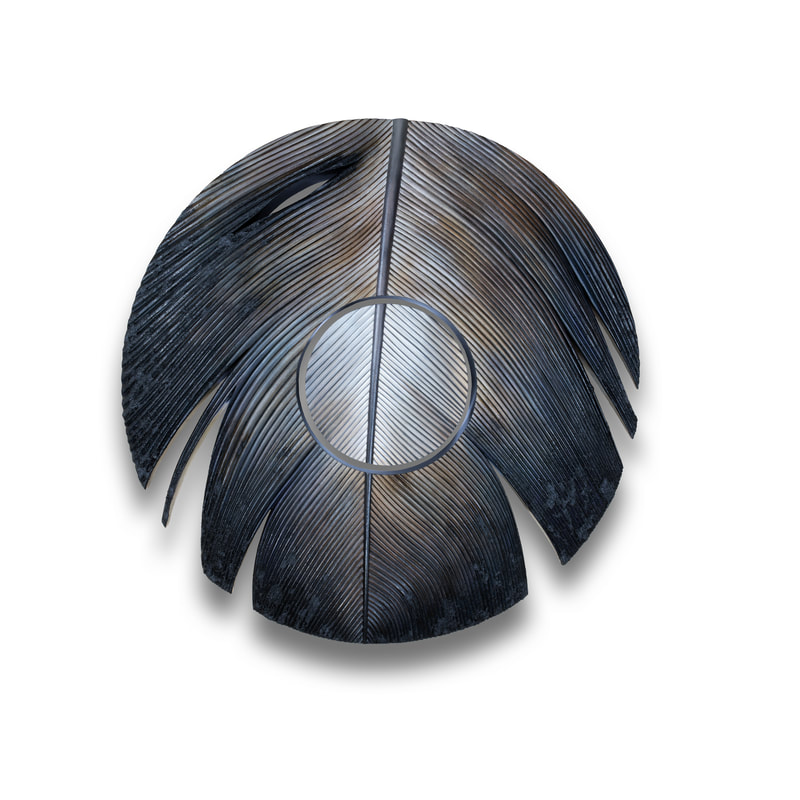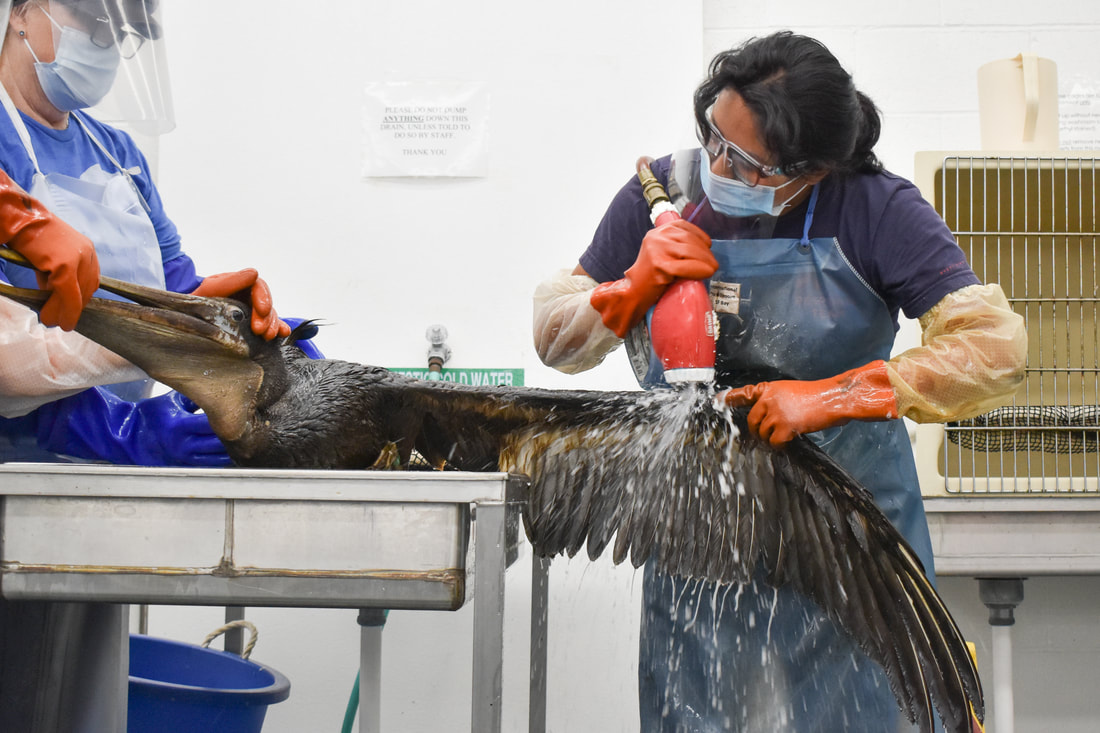Darkness Before Dawn: Brown Pelican 22-1039
The saying "it's darkest before the dawn" shines hope on the most agonizing circumstances. One such crisis in Malibu, CA, was an emaciated Brown Pelican whose body was 95% contaminated with oil. The tides turned when rehabbers at the International Bird Rescue used dish soap to remove these contaminants. Pelican 22-1039 was successfully released into the wild after 34 days of care and now wears the blue band 9C1 on her leg.
Microscopically, crude oil bogs down the velcro-like structure of a feather. In this macrosculpture, roofing tar and beach sand (once contaminated by an oil spill) represent the degrading qualities of crude oil.
This macrosculpture looks closely at an oiled feather before and after cleaning with dish soap. A cleaned portion of the feather floats in the center, and viewers can best witness this improvement when confronting the piece (and the issue) head-on.
Sculptural Process
The macrosculpture, carved from basswood, was initially roughed-out with large gouges and rasps. Detail was painstakingly added with a box cutter; each small groove took approximately five minutes to shape and sand. The sculpture was painted in oils. Sand/shell from a once-oil-spilled beach was mixed into the paint on the oiled portion of the sculpture. Petroleum-based roofing tar was also used to represent crude on the feather.
Darkness Before Dawn: Brown Pelican 22-1039
Notice how the texture conceals/reveals colors and details as the perspective shifts. The cleaned center is most easily witnessed when observing the macrosculpture head-on. This approach is a metaphor for the action we must take to connect injured birds with professional rehabbers. Each bird contributes to the genetic pool of its species.
"This Is Why Birds Are So Affected by Oil Spills"
Signs that a wild animal needs your help
- The animal does not fly or run away as you approach them.
- The animal is brought to you by a cat or dog.
- There’s evidence of bleeding.
- The animal has an apparent or obvious broken limb.
- A bird is featherless or nearly featherless and on the ground.
- The animal is shivering.
- There’s a dead parent nearby.
- The animal is crying and wandering all day long.
If an animal needs help, contact your local wildlife rehabilitation organization.
NOTE: It is often best that injured animals be handled by professionals.
Learn more about International Bird Rescue
Brown Pelican 22-1039 being professionally cleaned at Bird Rescue.
International Bird Rescue is a global conservation organization for birds in a changing world. Since 1971, Bird Rescue has responded to over 250 oil spills and other wildlife emergencies, caring for more than 160,000 birds on six continents.
Special thanks to Ariana at International Bird Rescue for sharing information on 22-1039 and providing photos. The above photos and info on Brown Pelican 22-1039 were shared with Bird Rescue's permission. Please consider showing your support for this amazing organization! Follow their great work on social media:
